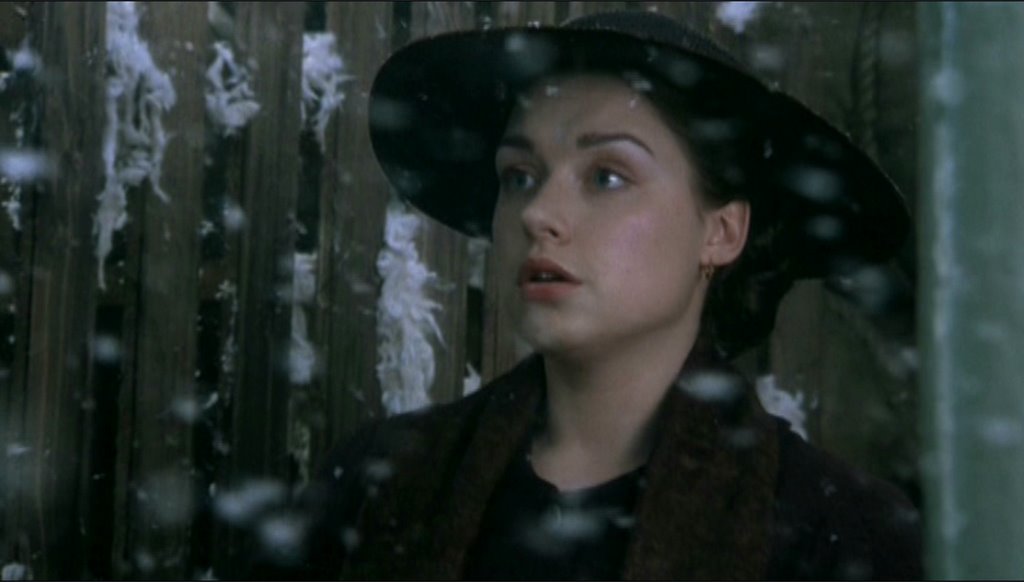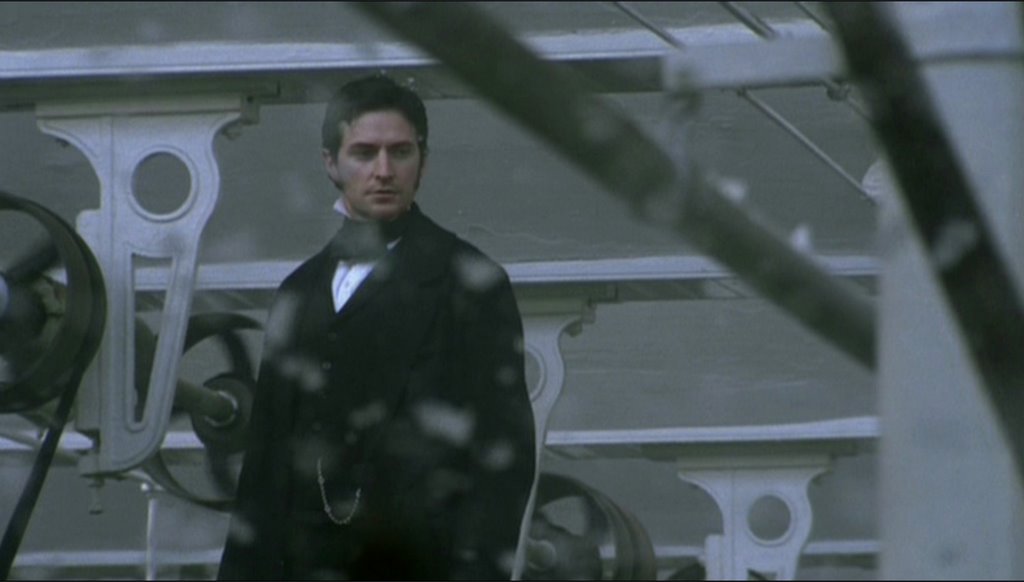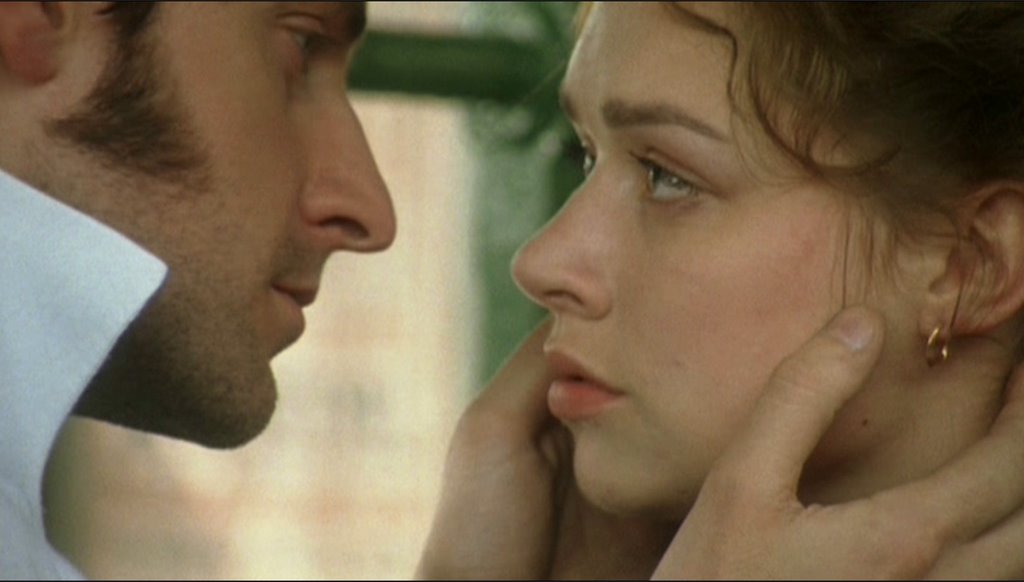Margaret Hale: I have seen hell and it's white.The way in which the British gentry tended to look down on those who engaged in trade has always amused me. My ancestors in County Cork were forced to engage in trade after their castle was confiscated by Oliver Cromwell. They had to eat, so they went to work. Being from a long line of hard-working and thrifty Irish and Scottish craftsmen, coal miners, blacksmiths, and farmers has instilled in me the deepest respect for manual labor. I know that engaging in trade is not the end of the world, having done it myself.
~North and South (2004)
However, to an English gentlewoman such as Margaret Hale, the heroine of Elizabeth Gaskell's novel North and South, moving to a factory town in the north of England, where she has to rub shoulders with persons who engage in trade, is the fate worse than death. Not only does John Thornton the mill owner engage in trade, but when Margaret first claps eyes on him he is shouting in a coarse manner as well as kicking and punching some blithering idiot half to death. Margaret does not realize that the blithering idiot with the pipe could have easily caused an inferno in the cotton mill which would have led to many deaths. She only sees that John Thornton is a bit on the rough side and therefore decides then and there that he is first, last, and only NOT a gentleman.
Now I have never read the book upon which the BBC production of North and South is based
On the other hand, the mill hand Nicholas Higgins proves himself not only to be the support of his family but a prince among men. Margaret seeks out the poor Higginses in their hovel in order to be their Lady Bountiful. The Higginses, however, give Margaret the emotional support she needs through so many upheavals. In the meantime, Margaret becomes so desperately attached to the factory owner John Thornton that she cannot bring herself to acknowledge the intensity of her feelings or his. Her regard for him increases as she sees that he tries to be a fair employer, having overcome a childhood of extreme hardship in order to provide for his family. She realizes that people cannot be put into all the neat little categories in which she had originally arranged her world. As her eyes open, so does her heart, which makes North and South one of the most powerfully romantic and memorable television films of the decade.
(Images) Share





















4 comments:
I loved the review, but you made one mistake: the author of North and South is Elizabeth Gaskell, not Catherine, as you wrote.
Wonderful post and so well said! My daughter and I watched North and South over the holidays and just loved it. Many surprises along the way. I was thinking about writing a post about it you have said it all. I watched Cranford for the second time and enjoyed it just as much as the first. I can see from you post that I have more to read from and about Elizabeth Gaskell.
Thank you!
Jeanne xx
Thank you, Jessie! It's fixed!
Thank you, Jeanne. I thought the acting was superb, too! Overall, it is an excellent production!
I saw striking similarities in Margaret's attitude toward John Thornton as those in Jane Austen's Pride and Prejudice.
Post a Comment